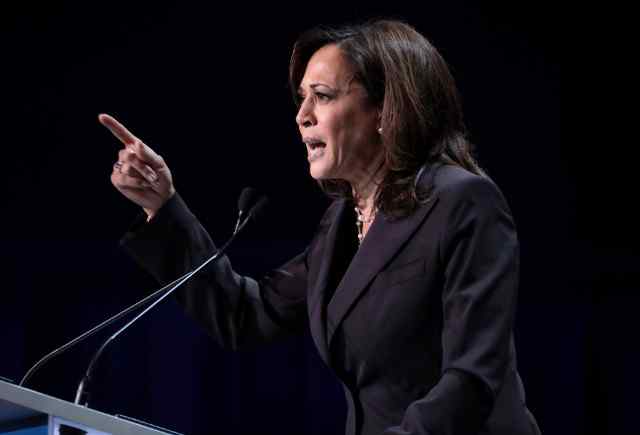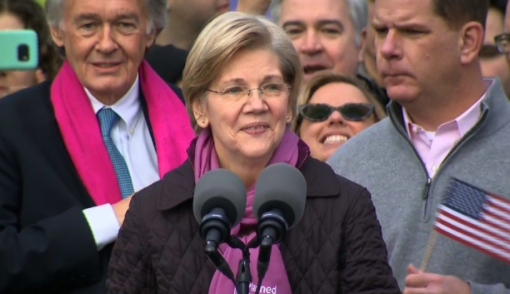(SNews) – Walt Disney has just posted a staggering loss as subscriptions for the company’s streaming service have plummeted.
In the second quarter of this year, Disney suffered a $460 million loss.
The company is raising the prices of its streaming services Disney+ and Hulu by as much as 27 percent.
The price hike comes after a series of “woke” film remakes bombed at the box office.
Visits to Walt Disney World in Florida have also fallen considerably amid the company’s war with Gov. Ron DeSantis.
Customers with Disney+ will see their monthly costs for the ad-free service rise by 27 percent, from $11 to $14.
Hulu prices for ad-free will rise by 20 percent, to $18.
The lowest-priced plans, Disney+ and Hulu with ads, will remain at $8 a month.
Disney’s results for the third quarter, released on Wednesday, were mixed.
They exceeded Wall Street’s estimates on adjusted per-share earnings and the company said it was on track to cut costs by more than the $5.5 billion it promised investors in February.
But the company missed Wall Street targets for revenue and fell slightly behind expectations on U.S. subscribers of Disney+, though it has significantly trimmed its losses.
CEO Bob Iger, who returned from retirement for a second stint running Disney, faces formidable challenges on nearly all fronts of the entertainment empire.
The troubles go far beyond Wall Street’s mandate to make its streaming business profitable.
It is coping with an eroding TV business and a movie box office that has yet to return to pre-pandemic levels.
Disney has also been humiliated by a series of “woke” flops at the box office.
According to an analysis by Valliant Renegade, which aims to look at the business and financial side of Hollywood, the last eight studio releases put out by the company have not performed as well as expected.
“Guardians of the Galaxy” and its most recent endeavor, a live-action version of “The Little Mermaid,” have failed to meet expectations.
Meanwhile, two other recent films, “Strange World” and “Lightyear” were complete failures.
Even Disney’s valuable archive has seen old characters given progressive makeovers.
“Offensive” imagery has also been removed from rides and movies.
Some conservatives feel the company has gone too far in its “woke” reinvention.
“One important aspect we always discuss here, which is worth reminding everyone about, is that Disney retains exclusive rights to its content after theatrical release,” said Valliant Renegade, a Twitter and YouTube cultural critic.
Disney no longer licenses content, such as the Marvel Cinematic Universe, to third-party platforms such as Netflix and Amazon and therefore has forfeited billions of dollars in potential revenue.
“The once envied entertainment company is now struggling to find a profit on almost every single film released,” the media analyst explained.
“Disney’s bloated budgets for these projects are vastly higher than the competition on average, particularly considering the fact that every single film Disney releases comes with blockbuster production price tags.”
In a statement on Wednesday, Iger referred to Disney undergoing an “unprecedented transformation.”
These changes include a restructuring of the company to help it become more efficient and restore creativity, Iger said.
“In the eight months since my return, these important changes are creating a more cost-effective, coordinated, and streamlined approach to our operations, that has put us on track to exceed our initial goal of $5.5 billion in savings,” he said.
Disney said it cut losses at its streaming video services to $512 million in its fiscal third quarter, narrower than its loss of about $1.1 billion a year ago.
It added 800,000 Disney+ subscribers, 100,000 subscribers shy of analyst estimates.
However, it shed 12.5 million subscribers to the Disney Hotstar service in India, or nearly a quarter of its subscribers, as it gave up rights to Indian Premiere League cricket matches.
Disney reported revenue of $22.33 billion for the quarter ended July 1, up 4% from a year ago but short of the Wall Street average estimate of $22.5 billion, according to Refinitiv data.
It delivered per-share earnings of $1.03, when excluding certain items, beating Wall Street projections of 95 cents a share.
It was not immediately clear if the adjusted profit figures were comparably calculated.
The company took $2.65 billion in impairment and restructuring charges in the quarter, reflecting the cost of removing some content from its streaming services, terminating licensing agreements, and $210 million in severance payments to laid-off workers.
Disney’s traditional television business continued its decline, with lower revenue and operating income across the company’s broadcast and cable TV business.
Higher sports programming production costs, together with lower affiliate revenue, dragged down the performance of its cable channels.
TV revenue for the quarter decreased 7% to $6.7 billion while operating income fell 23% to $1.9 billion.
Disney’s direct-to-consumer business reported a 9% increase in revenue to $5.5 billion, as the average revenue per subscriber rose at Disney+ and Hulu.
Content sales and licensing, the unit that includes film and television sales, reported a deeper operating loss of $243 million in the quarter, compared with a loss of $27 million a year ago.
Disney’s Parks, Experiences and Products group reported a 13% increase in revenue in the quarter, to $8.3 billion, and an 11% bump in operating income to $2.4 billion.
The results were buoyed by the rebound of the Shanghai Disney Resort, which was open for the full quarter compared with the same time a year ago when Covid forced the park to be closed for all but three days.
The unit had lower operating income at its domestic parks, due to decreases at Walt Disney World Resort in Orlando, Florida.
The park is at the heart of a battle between DeSantis and the company, which has seen DeSantis remove Disney’s special self-governing status and threaten to close some of the theme park rides.
In response, Iger has canceled investments in Florida, including a $1 billion campus that would have created 2,000 jobs.
slaynews.com/news/disney-suffers-massive-460-million-loss-in-second-quarter-as-streaming-subscriptions-plummet/







